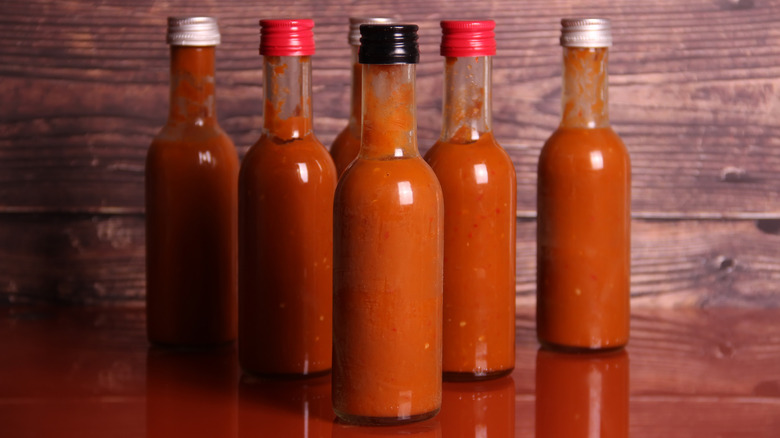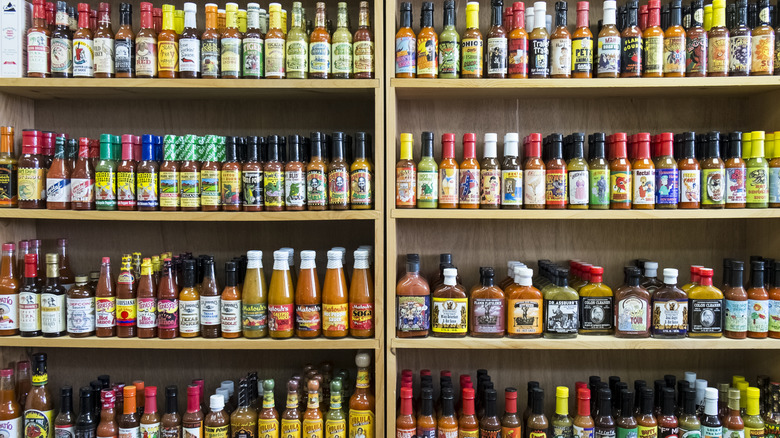Does Hot Sauce Ever Really Expire?
We may receive a commission on purchases made from links.
Whether it's mild, medium, or so blazing that it turns eating dinner into a dare, hot sauce is a common kitchen staple because many of us want some kind of kick with our food. Due to its meal-boosting nature, hot sauce might fall into that general seasoning part of your brain — it's easy to think of it like salt, pepper, or garlic powder. The problem with that is it doesn't last nearly as long as these dried ingredients. Unfortunately, hot sauce does eventually expire, though it can last a long time if stored properly. In order for your hot sauce to remain at its best flavor potential and its safest to consume, you should know its shelf life, signs of spoilage, and proper storage methods.
If you buy your hot sauce at a store, haven't opened it, and store it in a cool, dark place like a cabinet, it lasts one to two years. Once you open it, it must go in the fridge, where it can still thrive for another three months to a year as long as it's tightly sealed so no bacteria can get in and prematurely spoil it. Different hot sauces last different amounts of time within these ranges. They get their complex flavors and acidity from vinegar or fermentation. Learning the fermentation process for hot sauce helps you understand why these sauces, as well as those with vinegar's preservative qualities, last longer. If your hot sauce contains vinegar, was fermented, or both, you can expect a longer shelf life, but you still have to keep it sealed and refrigerated.
How to tell if your hot sauce has gone bad
To assess your hot sauce, expiration dates are a good first check. But keep some other signs in mind, too, because if the sauce hasn't been properly stored, it might spoil before that date. Look for things like a color change — getting darker is a sign of spoilage — but really any hue that's different than the one it was when you bought it is a red flag. You also might notice that sediment has sunk to the bottom, or you may even see some mold. In terms of smell, hot sauce will have that classic sour, rancid odor many foods have when they're past their prime. If you do taste it, you'll get more sourness or bitterness, and possibly a sandy or slimy consistency.
To ensure that your hot sauce doesn't expire before its time, it must be kept cool and completely sealed off against oxygen and bacteria. If you're a collector — let's say you're working your way through a spicy bucket list featuring some of the best rare hot sauces or are looking to try some of the more unusual hot sauce brands — think about designating part of a shelf in your refrigerator so you always have room. And when you see residue form where the lid screws on to the bottle, always clean that — it just invites more bacteria in. If you can't keep the bottle itself clean, transfer the sauce to an airtight container, like this squeeze bottle set available on Amazon. You'll be happy you did when enjoying its fresh, fiery heat.

